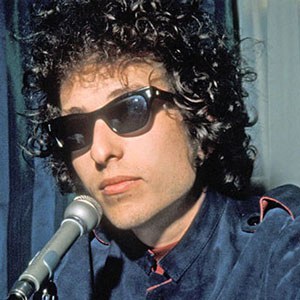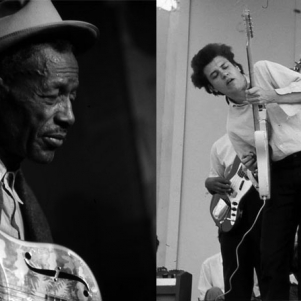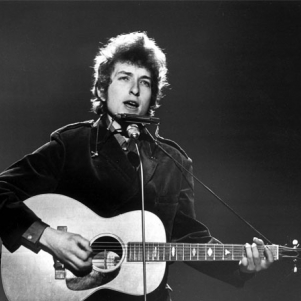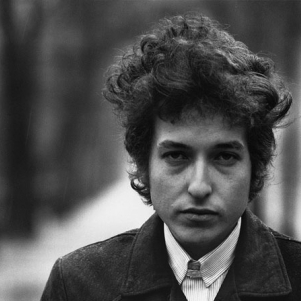2024 can be kinda lame...
Come Join us in 1974
July 24th, 1965: Dylan Goes Electric: an interview with author Elijah Wald
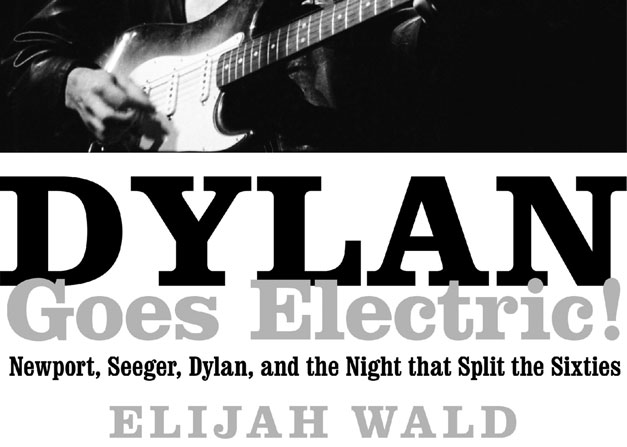
The events we write about at Gaslight Records happened in some form or another 50 years ago to the day. Roll along with us and imagine you are back in 1974.
Support Gaslight Records
July 25th marks 50 years since Bob Dylan took the stage with an electric band at the Newport Folk Festival in 1965. In that singular performance, he shook up not only the festival, but also the contemporary folk scene in America, in a way that neither would be the same again.
Dylan Goes Electric is a brand new book by author and musician Elijah Wald, who has written extensively about American roots music. Drawing on both new and previous accounts of what exactly went down that night, Wald provides a new and comprehensive look at the various people and forces that were in play, making Newport '65 still a topic of discussion today.
Peter Stone Brown: What made you want to take the subject on, knowing that very few accounts of this were the same?
Elijah Wald: That was actually what got me fascinated. What happened was Bruce Jackson wrote a book called The Story Is True, about folklore and myths, and he treated the whole story of Dylan getting booed at Newport as a myth. I then ended up in an online list of music historians mentioning that and a bunch of people said, "No, he did get booed." We went back and forth for a while. This happened to be in February, a couple of years ago, and it just hit me: if I could sort out a version of the Dylan story that was interesting in time for the 50th anniversary, I could sell a book. I’m a freelance writer - I like to sell books - so that was really the spur. Then, as I guess always happens, once I started researching it, I just became fascinated. Not even so much about that night, as just how much I hadn’t understood about the way the whole story had developed.
One of the things I liked was you presented Bob as a rock and roller from the very beginning. You know, when he was a kid, and then going to the University of Minnesota where he really started to learn about folk music. I liked that aspect because it made the book unique.
I honestly have to thank Peter Stampfel to a great degree for that. I quote him saying that, when he first saw Dylan onstage, right after Dylan arrived in New York, it was like this bolt of lightning; saying that you could sing old time music like it was rock and roll. My first reaction was, "Really Peter? It doesn’t sound that way to me." Then I went back and listened, and he was absolutely right.
Do you think Dylan’s decision to play the evening concert with a band was as spontaneous as it’s made out to be?
Yes. I can’t believe if it had not been spontaneous, that he wouldn’t have rehearsed a band a little more than that. I mean, all you have to do is listen to Jerome Arnold’s bass playing and you can believe it was as spontaneous as they say it was.
Do you think, as Peter Yarrow suggests in the book, that Dylan misjudged his audience?
I don’t think he cared very much. But I mean, I don't know. First of all, the set was really disorganized, and I don’t think he expected it to be that disorganized. My guess is, considering that when he had been onstage Saturday afternoon everybody had been screaming for him to play "Like A Rolling Stone", I would think that he would have expected a lot of people in the crowd to be absolutely thrilled that he was doing that. Honestly, I think it's an open question. If he had simply hit the stage and done a hot three electric songs, if the sound had been on top of it and everything, I have no idea what would have happened. I know that some people would have been upset, but the people who were excited would have been more excited, and that could have tipped the balance in a very different way. So I don’t know. I think Pete Seeger would have been equally upset either way. But the way it was, I think some people who could potentially have been excited by the set weren't.
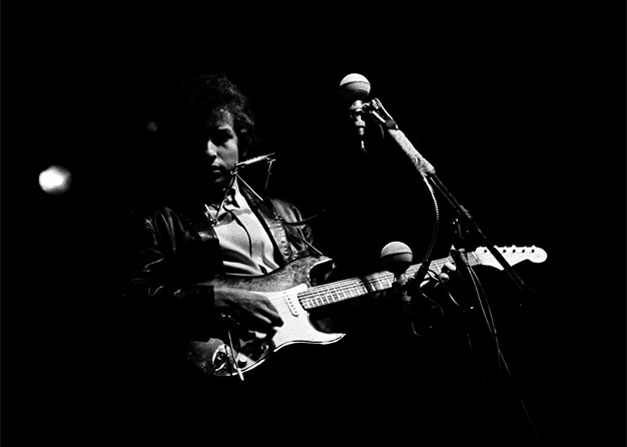
I can go with that. I mean there are other people who've talked about it. Geoff Muldaur, for example, has been quoted as saying "It just wasn't good."
Right, Geoff says it was just lousy and that he was standing far enough back that the problem was just not the mix up front. Geoff is a man of strong opinions and I agree with a lot of them, [but] not all of them. I have no idea what I would have thought had I been there and I have no idea how accurate anybody’s memory is. A perfect example of that - and I didn’t end up using this in the book - I have a friend who was there at age 15, who clearly remembers loving Dylan's electric set, but also clearly remembers that he had, back home, his acoustic guitar on which he scrawled an "X" through Dylan’s face on the picture he had of Dylan on the inside cover because he was so angry about Newport. So he has both the memory of loving it, and the memory that he clearly must have hated it. [Laughs]
I can understand that and I think even when Bringing It All Back Home came out, and before that the single of "Subterranean", it was a shock; even though all indications, if you were paying attention to what Dylan was doing, were that he was moving towards rock and roll.
Yeah, and also, people felt special about Dylan. Part of what I was trying to convey in this book is just that: the extent to which this had bigger meaning than just what it sounded like. That’s why I was so pleased to have that scrapbook that I quote from - Herb Van Dam and Judy Landers, who love all the pop folk. They love Peter, Paul & Mary, they love all that stuff; and yet, Dylan is selling out, for them, because Dylan is just supposed to be something different. Which was a hell of a weight for him to carry, but that’s part of the story.
And speaking of that, then you go into the whole thing of The Weavers changing folksongs to sort of make them commercial, though that may not have been everybody's intent.
Well, The Weavers with Gordon Jenkins' arrangements - that sure as hell was the intent. Pete Seeger has always been absolutely explicit that the whole idea of The Weavers was to become commercial stars, to have that power to then use for good rather than evil. But, he has always framed The Weavers not as something he did for artistic reasons, but as something he did because, he realized, that the fact that he was just out on the fringes and couldn’t draw a paying audience was limiting his effectiveness. The Weavers were going to be his way to become a star, and hence, more effective. What’s so crazy about that story is that it worked.
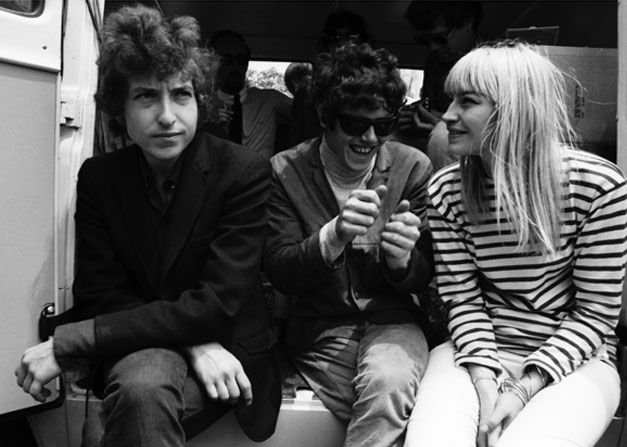
But the crazy thing is, the way you just framed it, it also fits in with his whole political thing.
Sure, but it fits in with his political thing in a somewhat different way than the usual framing of him, (as sort of a head in the skies saint who was not selling himself with the world), and gets us a bit more in Pete as someone who not only had politics, but had a sense of tactics. And he did brilliantly. All you had to do was see him onstage and you could see that. One of the huge problems with Pete as a story though, and one of the things that I tried to deal with somewhat in this book, but it’s always hard, is that we tend to understand music history - in the 20th Century at least - by listening to records. And what Pete did on a stage is not on the records. I love that Jon Pankake thing, comparing him to Williams Jennings Bryan, but it’s not crazy. He just had that live magic [and] it just isn’t there on the recordings. Making the case for what was so great about Pete Seeger to someone who never saw him live, they have to take it on faith because there’s no way you can prove it.
I’d say the closest he got to capturing it was the We Shall Overcome Carnegie 1963 release.
Yeah, I like that record a lot. But keep in mind, you or I, when we listen to that record, remember seeing Pete live. Say to someone who never saw Pete live, "listen to this, you’ll hear how great he was live", [and] they don't. I mean some love the record. I'm not saying - you know I can put together a collection of really good Pete Seeger stuff. I think the man was a terrific musician in a lot of ways, but the magic is another story.
Back again to the festival, I found that the cast of characters in the book - especially the people who were involved in the festival all along - the Board of Directors, for example, was quite interesting and it seemed like George Wein was kind of the voice of reason.
I think that's appropriately said, yeah. George was constantly, from the beginning, the person saying, "Guys, you know, that's great. On the other hand…" [Laughs]
Well, you know just the whole thing of everybody wanting to kick Albert Grossman out of the festival, and he's going "Hold on a second."
Yeah, that’s an interesting story to me because when I first read that I was a little dubious, and I still don’t know 100 percent that it’s true, but apparently it's true. I’ve since had somebody tell me that Pete told them that story too. I asked Peter Yarrow and George Wein and I was interested to hear both of them saying, "I don’t remember, but it makes sense to me. You know it sounds right." But Lomax, you know Alan Lomax was an incredibly important, incredibly brilliant, incredibly significant and incredibly difficult man.
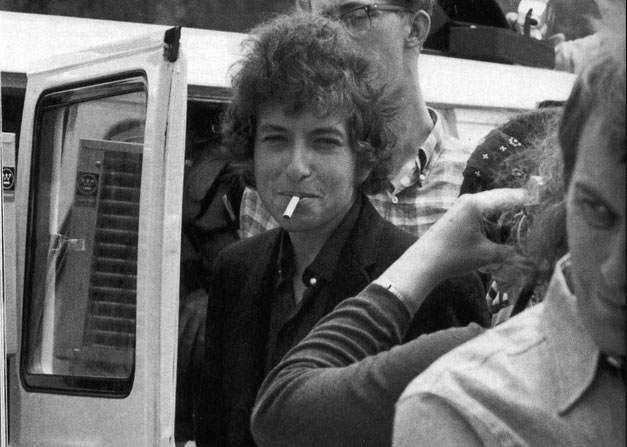
The more I read and find out about him, the more complex he becomes. All the stuff you point out about him doing the shows and bringing on rock acts in 1959 at a folk show. It’s outrageous.
Exactly, I mean he’s trying to bring on The Cadillacs, and his whole point was if you want folk music in New York, folk music in New York is the doo-wop guys in Harlem, not a bunch of college kids with banjos. It was completely consistent with his broader position. People want to simplify his broader position and I don’t mean people in general. There was a war that happened in the '60s going into the '70s, of a bunch of rock critics who were trying to write intelligently about rock and roll, in a world where a lot of the gatekeepers considered rock and roll stupid and folk music intelligent. A lot of them never got rid of the chip on their shoulder from that period and like to think of the whole folk world as, essentially, liking insipid music and hating rock and roll. So Lomax, the whole idea of purism gets lumped into that, when in fact Lomax’s purism was a very, very different kind of purism. He was a purist, but he was a purist much more the way Greil Marcus is a purist, than in the way people who don’t want to hear anything from after 1920 are purists.
One of the things about Dylan that a lot of the folkies didn't seem to realize, (and this didn't necessarily happen in the '60s, but happened later when he started revisiting folksongs), was he started turning people on to a lot of music that they wouldn’t have known about, just by singing the songs.
With his radio show and all, absolutely. That’s one of the things that’s so funny about all of this - and I don’t hit it over the head, but I do talk about it briefly right at the end of the book - is by now everybody thinks of Dylan as a patron saint of roots music. I mean everybody now associates, any young person now associates, Dylan with old-fashioned music. And with good reason. Obviously, the new Sinatra one is an extreme example in a way, but the idea that Dylan is a rejection of folk music is ridiculous, including that particular night at Newport. What Dylan was rejecting, whatever it was, was not folk music.
No, it was more the other stuff that came along with it in a sense.
Well, it's important to remember that there was a world of purists [that] Dylan came out of, like the Little Sandy Review people - who hated Baez and Peter, Paul & Mary and considered it not folk music - who liked the electric Dylan stuff. People completely misunderstand if they think that the hardcore purists were the ones who were upset. The ones who were upset were the Peter, Paul & Mary fans. There were hardcore purists, who had never liked Dylan, but the hardcore purists who liked early Dylan, tended to like [his electric music] - you know he himself said that. That’s one of the quotes that, when I found it, I [thought] it made sense: "I don't think the people who were upset were my early fans. My early fans are still with me. It’s the people who just found out about me in the last couple of years." And I think that’s right; it was the people whose idea of Bob Dylan was "Blowin' In The Wind", not the people whose idea of Bob Dylan was "Highway 51".
Well, in my case, we didn't get the first Dylan album until a year later. I heard "Baby, Let Me Follow You Down" on some folk radio show and I thought, "I didn't know he could play guitar like that." Discovering that whole record was a whole different thing than Freewheelin'.
Right, which again, I think it's very, very hard for people who came along later to understand that most people discovered, most people heard Dylan songs, before they knew who Dylan was. That fuel is so foreign for people even five years younger than you, but certainly people ten, twenty, thirty, forty and fifty years younger than you because they all had heard of Dylan before they heard the music.
Are you aware that when Dylan returned to Newport in 2002, the day the show was announced, he was on tour, I think it was in Germany, and he played with his band an acoustic version of "Maggie’s Farm?"
I didn’t know that. That’s funny.
He does these funny little things. He gives the impression that he’s not paying attention when he is paying attention, if you read the signs.
The temptation to interpret, I don't escape it completely, but I try to back off as often as I can because, boy, do I feel that temptation.
That was one of the things I liked about the book, because you had the chapter on Pete, and then the chapter on Dylan, and you managed to do it and stay away from interpretation. You had to mention a couple of songs here and there, but you basically kept the focus on the music.
I just sort of felt like there'd been all these discussions for all this time, and they don't all agree with each other, but they were all discussing the same thing. Let’s discuss something else for a while. And obviously, I also think that that’s one of the advantages of the focus that I had by just thinking about that night, because whatever it was that made Dylan decide to go electric, it wasn’t the poetry. So I'm not disagreeing with anyone who says the poetry is the most important thing about Dylan, that's a perfectly reasonable opinion, but it’s not the most important thing about Dylan for this story. I think it’s an interesting story because the thing, in a way, that I will take away from this project is I had never really gotten into the late - what for some people is golden - era of Dylan with Love And Theft. When I first heard [those albums], I just went okay, whatever. After this project, I went back to them and just completely fell in love. I just listen to them over and over and over, and you know, that’s a gift. That’s really exciting for me to discover something new that I like that much - which just reminded me, he talks about that in Chronicles. I enjoyed Chronicles. One of the things I found most striking in it is that moment where he’s sort of saying, "I couldn’t write like I used to write, I didn't have that magic anymore. I was thinking of just giving up and then I realized, wait a minute, I can just be a musician. I used to be a musician. I could do that again." And yes, Dylan is often mysterious, and will say one thing one day, and another thing another day, but in terms of this project, that way of thinking about who he was just made a lot of sense.
2024 can be kinda lame...
Come Join us in 1974
More recent news
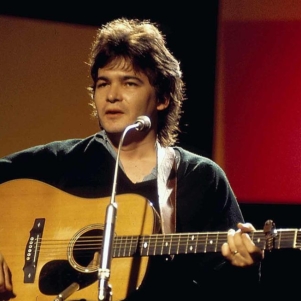
News
August 26th, 1972: John Prine returns with second album
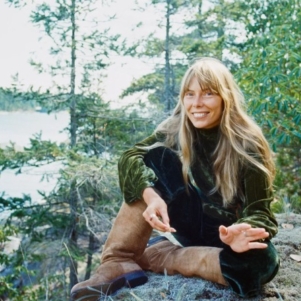
News
August 24th, 1972: Joni Mitchell recording 5th studio album
28-year-old Joni Mitchell has begun recording her 5th studio album in Hollywood, California. For The Roses is Mitchell's follow up to her 1971 album Blue.
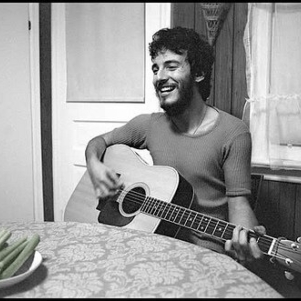
News
August 23rd, 1972: Bruce Springsteen has begun recording debut album in New York
John Hammond signed Springsteen to Columbia Records earlier this year.
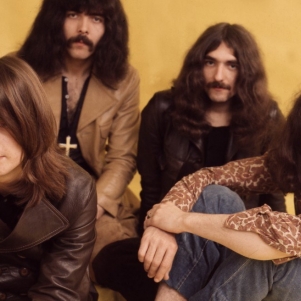
News
February 7th, 1970: Black Sabbath share debut single "Evil Woman": Listen
The English rock band's debut album is due out this week.
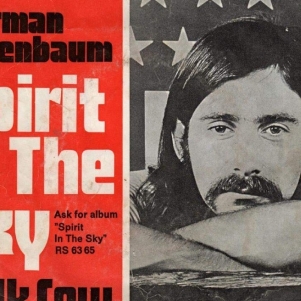
News
December 30th, 1969: Norman Greenbaum releases "Spirit In The Sky" from his debut album: Listen
Greenbaum's sings the gospel on his new single
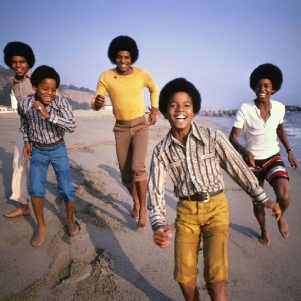
News
December 23rd, 1969: Watch The Jackson 5 perform single from their debut album on Ed Sullivan
Diana Ross Presents The Jackson 5 is the latest release from Motown
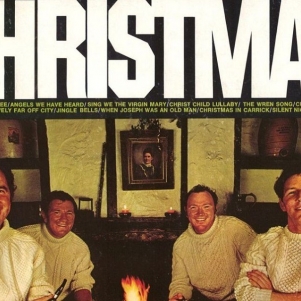
News
December 20th, 1969: The Clancy Brothers have released a new album of Christmas songs: Listen
Irish folk group, The Clancy Brothers have recorded 11 songs to bring a little joy to your Christmas
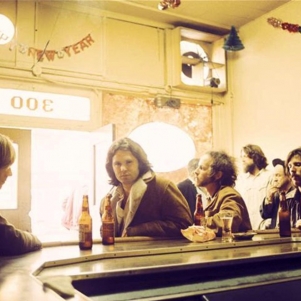
News
December 18th, 1969: See photos from The Doors album cover shoot in Los Angeles today
The new Doors album is due for release early next year.
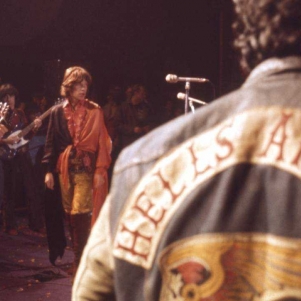
Article
December 10th, 1969: Four people died over the weekend at The Altamont Speedway Free Festival
Here's the story of Altamont in quotes from many of the people involved.
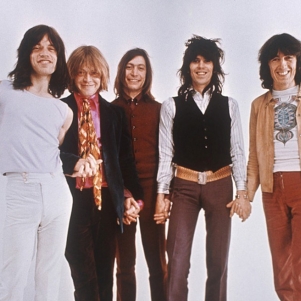
News
December 5th, 1969: The Rolling Stones have released a new studio album ahead of their free concert tomorrow at Altamont
As The Stones finish their run of U.S. concert dates they have released their eighth album, Let It Bleed.
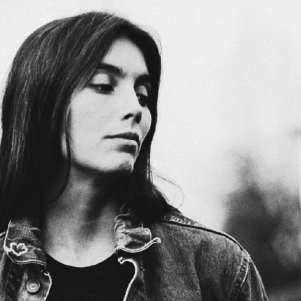
News
December 3rd, 1969: Emmylou Harris covers Bob Dylan on debut album
Listen to Harris's cover of Dylan's "I'll Be Your Baby Tonight" from her album Gliding Bird
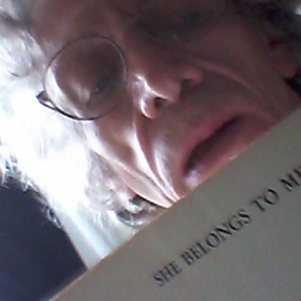
Live At The Gaslight
Peter Stone Brown covers Bob Dylan's "She Belongs To Me"
Recorded in Atlantic City at Dylan Fest in 2015


